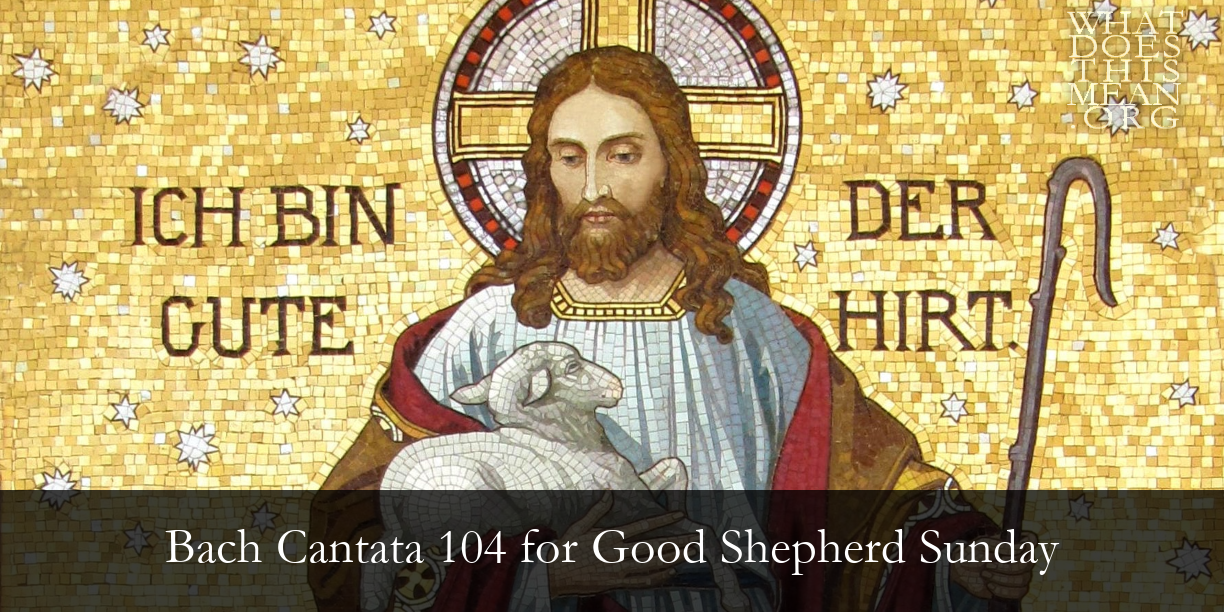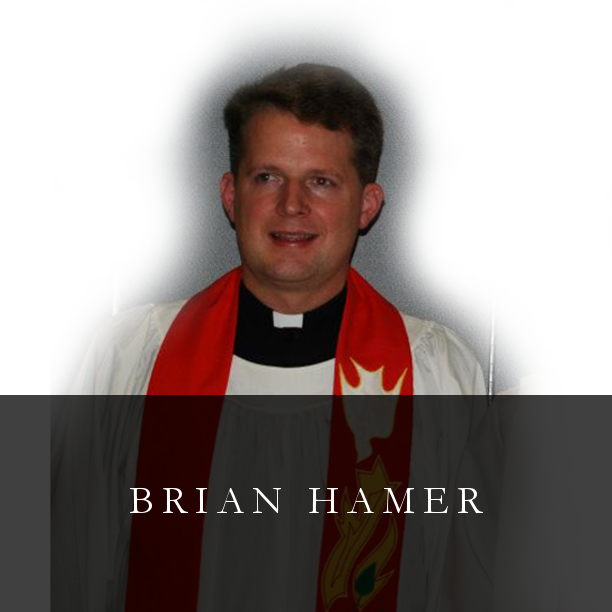We may justly consider the opening chorus, scored for SATB, two oboes, oboe da caccia, strings, and continuo, to be among the very finest in Bach’s cantata output . . . . the pastoral imagery is tenderly and imaginatively evoked in the lyrical G major opening chorus in 3 / 4 time. The gigue-like rhythm, the sighing phrases, and the urgently reiterated supplications ‘höre’ (‘hear’) and ‘erscheine’ (‘appear’), suffuse the movement with a profound melancholy . . . in this pastoral elegy.” (Oxford Composer Companions: J. S Bach, p. 143).
The rest of the text unfolds the mystery of Christ’s work for us as our Good Shepherd. The tenor sings the good news that our Shepherd meets our every need and leads us to the Father (“Abba”). The bass preaches the sacred truth that Christ is present to feed us at table and to give us a foretaste of heaven, language which references the Sacrament of the Altar and the foretaste of heaven therein. In the closing chorale, the congregation finally hears Psalm 23 (a metrical version, but very close to the biblical text), its first appearance in the liturgy of Good Shepherd Sunday.
I have provided an interlinear translation for the first and last movements, allowing you to follow the text closely. The intermittent movements include the English translation and key words in German, inviting you to listen for key moments of text painting. As always, I invite you to clear away all distractions, invite your family to join you, and listen devotionally to this Cantata, i.e., to listen for the comfort of the good news that Christ is your Good Shepherd. Do you recognize the chorale tune in the final movement?
| 1 Chorus Du Hirte Israel, Thou Shepherd of Israel höre der du Joseph hütest wie der Schafe, hear (us), thou who Joseph shelters like sheep, erscheine, der du sitzest über Cherubim. Appear, Thou who sits above the cherubim. 2 Tenor Recitative 4:57 The highest Shepherd [höchste Hirte] takes care of me, What use are my cares? Indeed every morning. the kindness [Güte] of the shepherd is new My heart, compose yourself, God is faithful [getreu]. 3 Tenor Aria 5:30 If my Shepherd stays hidden too long [zu lange ] And the wilderness makes me too fearful, My weak step still hastens forward my mouth cries [schreit] to you, and you, my Shepherd, bring about in me A faithful ‘Abba’ through your word. 4 Bass Recitative 8:40 Yes, this word [Wort] is the food [Speise] of my soul, a refreshment [Labsal] for my breast, the pasture, that I call my delight [Lust] a foretaste [Vorschmack] of heaven, indeed my all. Ah! Gather together now, O good Shepherd, us who are poor and gone astray; Ah let our path soon be ended And lead us into your sheepfold [Schafstall]! 5 Bass Aria 9:43 Happy flock, Jesus' sheep [Schafe]. The world is for you a heavenly kingdom [Himmelreich]. Here you already taste the goodness of Jesus and hope for the reward [Lohn] of faith after a sweet sleep-of-death [Todesschlafe]. 6 Chorale 16:43 Der Herr ist mein getreuer Hirt, The Lord is my faithful Shepherd dem ich mich ganz vertraue, To whom I completely entrust myself Zu Weid er mich, sein Schäflein, führt, To a pasture he leads me, his little sheep Auf schöner grünen Aue, Upon a beautiful green meadow. Zum frischen Wasser leit' er mich, To fresh waters leads He me Mein Seel zu laben kräftliglich My soul to restore powerfully Durchs selig Wort der Gnaden. Through the blessed Word of Grace. |
Could there be a more fitting conclusion to this Cantata? See what comfort there is for you in this Good Shepherd theme! Everything in your life is under the watchful care of the Shepherd. Your entire life becomes, as it were, Psalm 23 fulfilled. Jesus is Your Shepherd, who meets your every need. He leads you beside the waters of baptism, makes you lie down in churchly pastures, and restores your soul through absolution. And even though you walk through the valley of the shadow of death, you need not fear, for Christ is with you and will not forsake you. He prepares a sacramental table before you, set in the very teeth of the devil, the world, and the sinful flesh. His goodness and mercy shall follow you— even through your worst moments of sin, despair, and betrayal—to the unfading crown of glory “that [you] may obtain a place in [His] eternal habitation, and be filled with the plenitude of the celestial banquet” (The Brotherhood Prayer Book, p. 165).



 RSS Feed
RSS Feed
